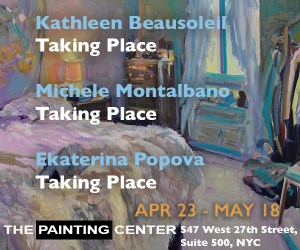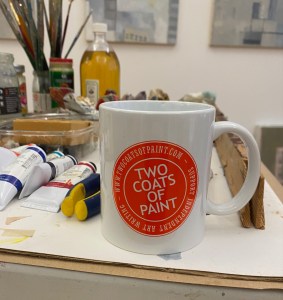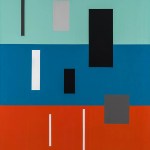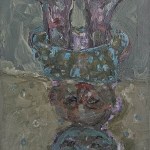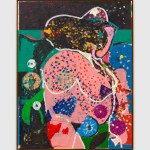
Contributed by Jonathan Stevenson / The artistic process comes up quite a bit in cinema. This month alone, three new movies feature protagonists who are artists struggling against various worldly impediments to make their way. At the agreeable end of the spectrum, in Brett Haley�s comforting Hearts Beat Loud, there�s the irrepressibly winning Nick Offerman�s Frank Fisher � a lovably low-energy alt-rock type finessing the tradeoff between practical sustenance and artistic pursuit in a cocoon-like Red Hook. At the nasty end, in Ari Aster�s audaciously grotesque Hereditary, is Toni Collette�s incendiary Annie Graham �a successful visual artist whose existential solution of emotional compartmentalization via miniature figures in dollhouses falls tragically short when challenged by the grief and guilt of intimate loss. Somewhere in between, at a point where the understandable converges on the misanthropic, is the protean Andrea Riseborough�s Nancy Freeman in Christina Choe�s transfixingly neo-Hitchcockian Nancy � like Hereditary, an extraordinarily accomplished first feature.
An aspiring writer in her mid-thirties, Nancy is a sullen and manipulative dissembler, lying outrageously about herself and her troubles online as she fields repeated rejections of her stories. But she has reason to yearn for a brighter and more interesting life: her days are spent desultorily applying for lousy day jobs and caring for her disdainful, Parkinson�s-afflicted mother, portrayed by the ubiquitous and singularly sinister Ann Dowd, also a key player in Hereditary. Shortly after her mother dies, Nancy sees a TV news feature about an upstate New York couple, Leo and Ellen Lynch, whose daughter Brooke disappeared 30 years earlier. Noticing a facial resemblance, Nancy contacts them and says she might be the daughter.
Nancy goes to visit the Lynches � J. Cameron-Smith and an improbably moored Steve Buscemi, both faultless � and, though Leo is at pains to check Ellen�s desperate suggestibility, the three fitfully bond over the course of several days. Nancy sleeps in the daughter�s bedroom, which has been preserved like a shrine, as they await the results of a DNA test. Potential psychosis and violence lurk in every scene of this stealthily smart and unapologetically lugubrious film, but Nancy never becomes Marnie. In the closing shot, her subtly shading expressions crystallize the two main possibilities: she hoped she was Brooke so she could slip into an instantaneously better life; or knew she wasn�t and merely sought a galvanizing and assuring human connection. Neither motive condemns her. A third possibility � that Nancy was a down-and-out writer cynically looking for a story � is less inspiring but no less human. Riseborough turns in a performance, and Choe a movie, that deals beautifully with unlovely complexity. That�s art.
Nancy, written and directed by Christina Choe. With Andrea Riseborough, J. Smith-Cameron, Steve Buscemi, Ann Dowd, John Leguizamo.
Related posts:
Art and Film: Kelly Reichardt�s stoic women
Another painter turned filmmaker: Kathryn Bigelow


